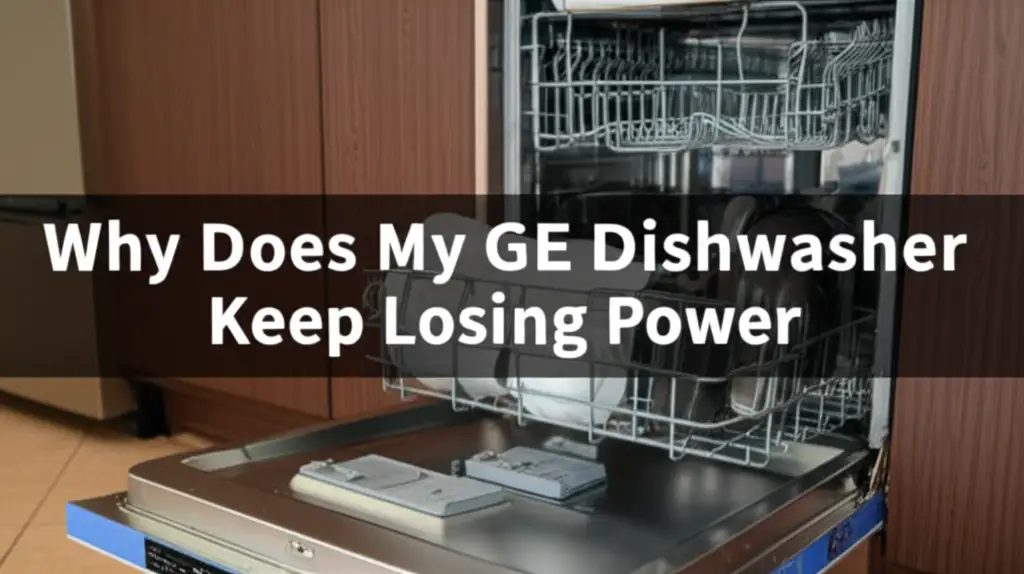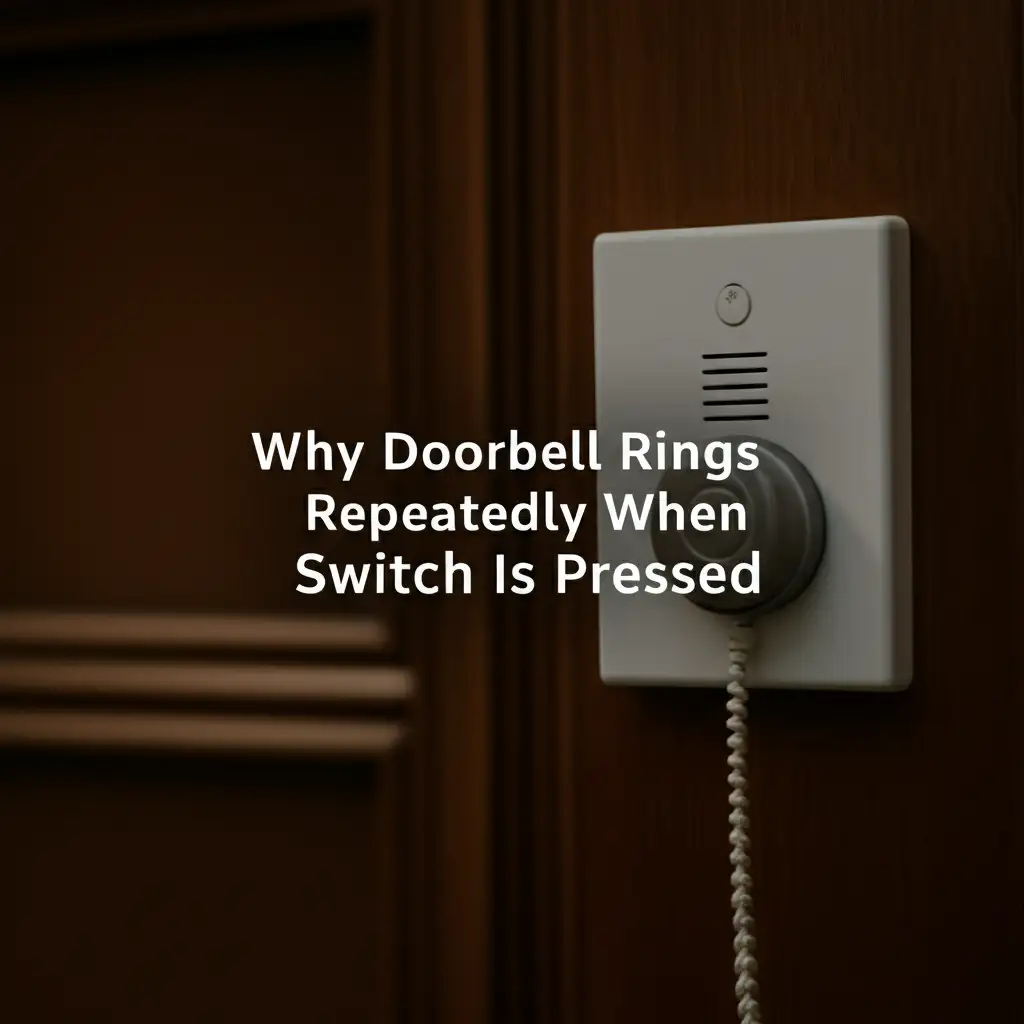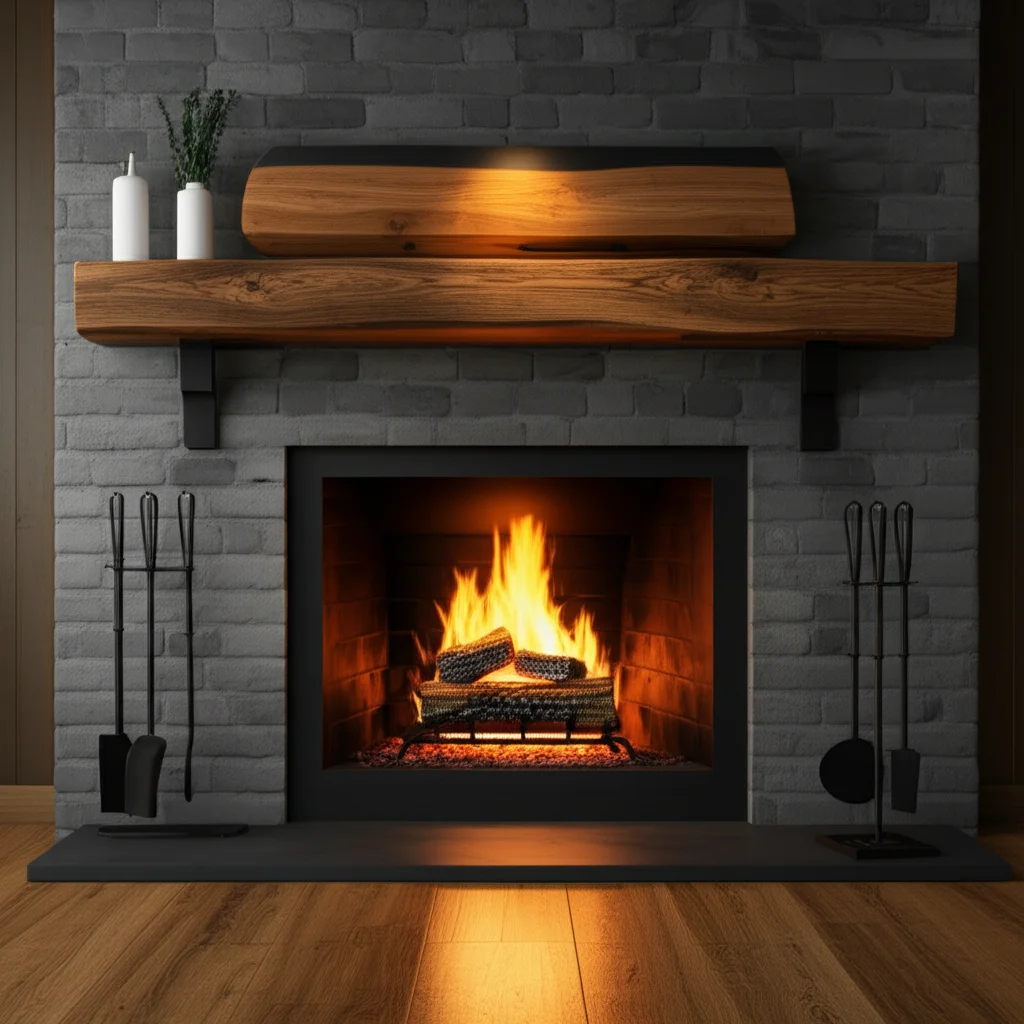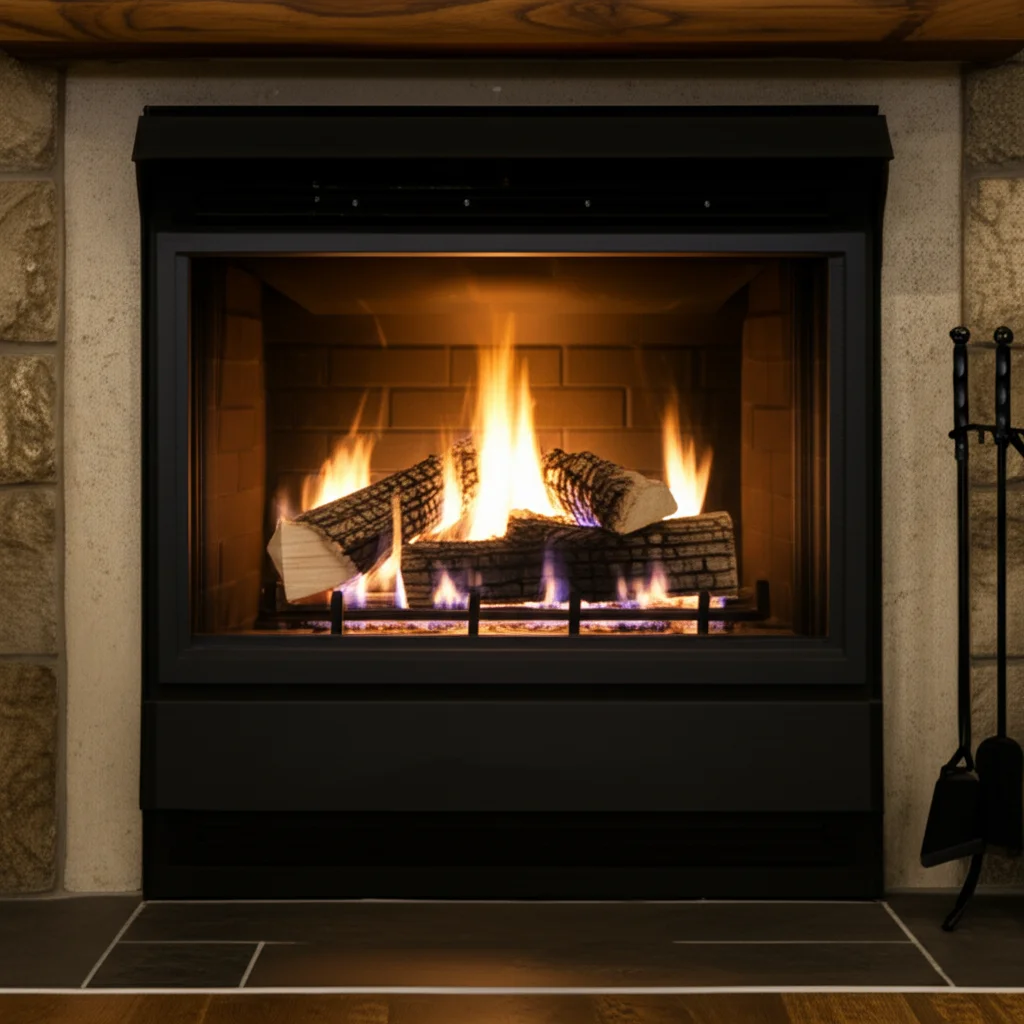· Todd Martin · Home Maintenance · 19 min read
Why Does My Central Air Conditioner Keep Blowing Fuses
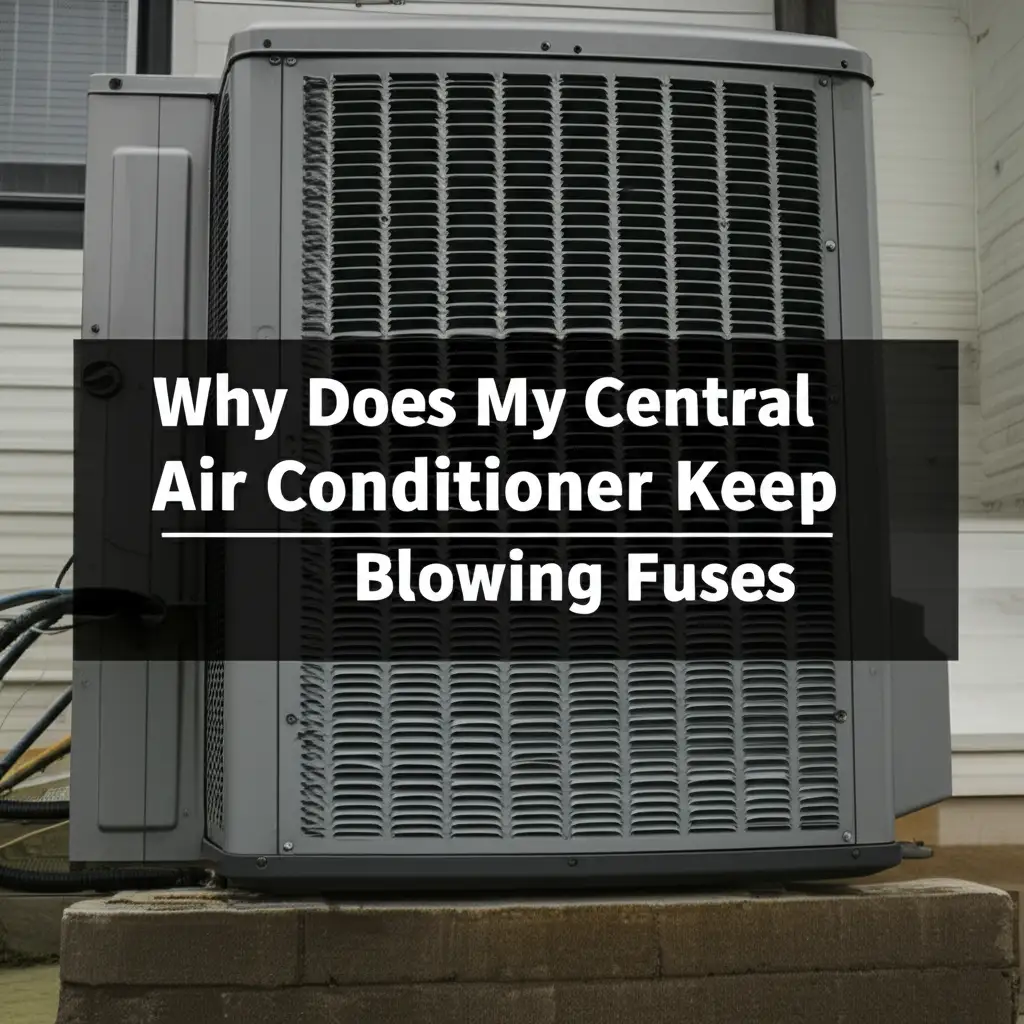
Why Does My Central Air Conditioner Keep Blowing Fuses?
Imagine this: The summer heat is intense, and you turn on your central air conditioner for relief. A few minutes later, the house feels warm again, and you discover the AC is off. Checking the electrical panel, you see a blown fuse. Why does my central air conditioner keep blowing fuses? This is a frustrating problem many homeowners face. It signals an underlying issue that needs immediate attention. Ignoring it can lead to more costly repairs or even safety risks. I understand this can be alarming, but most causes are fixable. This article will help you understand common reasons for your AC’s repeated fuse failures. We will cover how to identify the problem and when to call a professional technician.
Takeaway
If your central air conditioner repeatedly blows fuses, it points to a serious electrical or mechanical problem.
- Check the filter: A dirty air filter restricts airflow, causing the system to overwork.
- Inspect outdoor unit: Clear debris from the condenser coils and ensure proper airflow.
- Listen for sounds: Unusual noises from the outdoor unit often signal motor or compressor issues.
- Inspect wiring: Look for frayed or loose wires, which can cause short circuits.
- Call a professional: For persistent issues or if you suspect major component failure, contact an HVAC technician.
A central air conditioner keeps blowing fuses when too much electrical current flows through the circuit. This surge often results from mechanical problems within the AC unit itself or underlying electrical issues in your home’s wiring. Common culprits include a failing compressor, a faulty fan motor, a short circuit, or a dirty system forcing components to overwork.
Understanding Your AC’s Fuses and Electrical Safety
Your central air conditioner relies on a steady flow of electricity to operate. Fuses act as safety devices. They protect your AC unit and home wiring from damage caused by power surges or overloads. When too much current flows, the fuse’s internal wire melts, breaking the circuit. This prevents further damage to expensive components like the compressor or fan motor. It also helps prevent electrical fires.
You usually find AC fuses in a small disconnect box near your outdoor condenser unit. These are cartridge fuses, cylindrical in shape. Your main electrical panel also has circuit breakers. These breakers serve a similar purpose. Sometimes, people use the terms “blowing a fuse” and “tripping a breaker” interchangeably. While both stop electrical flow, they are distinct components. Knowing where your AC’s fuses are helps with initial troubleshooting. Always turn off power at the main breaker before handling fuses. This ensures your safety.
Identifying Common Electrical Faults
Electrical problems are primary culprits when your central air conditioner keeps blowing fuses. These issues can range from simple wiring faults to more serious component failures. It is important to diagnose them accurately. Understanding these faults helps you decide if you can fix it yourself or if you need a professional. My goal is to make these concepts clear for you.
Short Circuits and Wiring Issues
A short circuit happens when electricity takes an unintended path. This causes a sudden, large surge of current. For your AC, this might occur if wires touch where they should not. Rodents chewing through insulation can also cause this problem. Loose connections or damaged insulation can lead to a short circuit. When this happens, the fuse blows immediately to prevent damage.
I recommend checking your AC unit’s wiring connections. Look for any frayed wires, exposed copper, or scorch marks. Pay attention to wires leading into the compressor, fan motor, and capacitor. These are common spots for wear. Tightening loose screws on terminals can often resolve minor issues. However, if you find significant damage, do not attempt to repair it yourself. Electrical work can be dangerous without proper training.
Overloaded Circuits and Undersized Wiring
An overloaded circuit means your AC unit is drawing more power than the circuit can safely handle. This can happen if the circuit is also powering other heavy appliances. It can also occur if the wiring for your AC is too thin for its power requirements. This often becomes apparent during peak operation. The AC tries to start, draws a large initial current, and then the fuse blows.
To check for this, ensure your AC unit is on a dedicated circuit. This means no other large appliances share the same breaker or fuse. If the wiring is undersized, it will heat up quickly. This presents a fire hazard and causes fuses to blow. Determining wire gauge requires electrical knowledge. If you suspect undersized wiring, consult a licensed electrician. They can assess your system’s needs. This prevents your central air conditioner from continuously blowing fuses due to inadequate electrical supply. If you are experiencing issues with your central air conditioner constantly tripping the breaker, it might be related to similar electrical overload issues. You can learn more about this common problem here: Why Does My Central Air Conditioner Keep Tripping the Breaker.
Troubleshooting Motor-Related Problems
The motors in your central air conditioner are crucial for its operation. Both the compressor motor and the fan motors can cause fuses to blow if they malfunction. These components draw significant power, especially during startup. When they struggle, they pull even more current, leading to an overload situation. I’ve seen many cases where a failing motor is the root cause.
Compressor Issues
The compressor is the heart of your AC system. It compresses refrigerant, making the cooling cycle possible. A failing compressor is a frequent reason why a central air conditioner keeps blowing fuses. Compressors can fail due to old age, overheating, or a lack of proper lubrication. When a compressor struggles to start or run, it draws excessive current. This surge trips the fuse or breaker to protect the unit.
Symptoms of a bad compressor include loud grinding or humming noises from the outdoor unit. The unit might try to start but fail. Sometimes, it just clicks and then nothing. If you suspect a compressor issue, it is a serious problem. Compressor replacement is expensive and requires a professional. Do not try to run the unit if you hear these sounds or suspect compressor failure.
Fan Motor Problems
Your AC unit has two main fan motors: one for the outdoor condenser unit and one for the indoor blower. Both are essential for airflow. If either fan motor struggles, it can cause the fuse to blow. This often happens if the motor is old, dirty, or has bad bearings. A failing fan motor draws more current trying to spin.
Listen for unusual noises from the fan. A loud hum, squealing, or grinding sound suggests the motor is struggling. You might also notice the fan spinning slowly or not at all. Check the outdoor fan for obstructions. Leaves, dirt, or other debris can jam the fan blades. This forces the motor to overwork. If the fan motor is difficult to turn by hand, its bearings might be seized. This requires professional attention. A struggling fan motor can also lead to other issues, like your AC running but not cooling your house effectively. Find out more here: Why Is My Central Air Conditioner Running But Not Cooling the House.
Capacitor Failures and Their Impact
Capacitors are small but mighty components in your central air conditioner. They are like batteries that provide a quick burst of energy. This energy helps the motors, especially the compressor and fan motors, start up. Without a functioning capacitor, your motors cannot get the initial jolt of power they need. This often leads to your central air conditioner blowing fuses.
Start and Run Capacitors
Your AC unit typically has two types of capacitors: a start capacitor and a run capacitor. The start capacitor gives a powerful jolt to help the motor overcome initial inertia. The run capacitor provides continuous energy to help the motor run efficiently once it’s started. Both are vital for proper operation. When a capacitor fails, the motor struggles to start. It draws a large amount of current from the electrical circuit. This overcurrent causes the fuse to blow to protect the motor from damage.
Symptoms of a bad capacitor include the AC unit humming but not starting. You might hear a clicking sound as the unit tries repeatedly to kick on. The fan might spin slowly or not at all. Sometimes, a visibly swollen or bulging capacitor indicates failure. Replacing a capacitor is a common repair. However, capacitors store a powerful electrical charge even when power is off. I always advise extreme caution. It is safer to have a professional technician handle capacitor replacement. They have the right tools to discharge the capacitor safely before working on it.
The Role of Dirty Components and Restricted Airflow
Your central air conditioner needs to breathe. When components get dirty or airflow becomes restricted, the system works harder. This extra effort requires more electricity. It pushes the motors beyond their normal operating limits. This increased electrical demand can lead to your central air conditioner blowing fuses. Maintaining clean components is a simple step you can take.
Clogged Air Filters
A dirty air filter is one of the easiest problems to fix. It is also one of the most common causes of AC issues. Your air filter traps dust, dirt, and allergens from the air. Over time, it gets clogged. A clogged filter blocks the flow of air into your indoor unit. This restricts the amount of air that can pass over the evaporator coil. The restricted airflow makes your blower motor work harder to pull air through.
This increased strain causes the motor to draw more current than usual. This excessive current can blow the fuse protecting the blower motor. I recommend checking your air filter monthly. If it looks dirty, replace it. Clean filters improve airflow, reduce energy consumption, and prevent your AC from overworking. Regular filter replacement helps keep your system running smoothly and avoids unnecessary fuse blowing. You can learn more about how to keep your filter clean here: How to Clean Air Conditioner Filter.
Dirty Condenser Coils
The outdoor unit of your central air conditioner houses the condenser coils. These coils release heat from your home into the outside air. Over time, dirt, leaves, grass clippings, and other debris accumulate on these coils. This layer of grime acts as an insulator. It prevents the coils from efficiently releasing heat. When the condenser coils are dirty, the entire system must work harder.
The compressor runs longer and hotter to try and dissipate the heat. This continuous struggle increases the electrical load on the system. The high current draw can cause the AC fuse to blow. Keeping the outdoor unit clean is important. I always clear away debris from around the unit. I gently rinse the condenser coils with a garden hose. This simple maintenance step can significantly improve your AC’s efficiency. It also helps prevent components from overheating. This reduces the chance of your central air conditioner blowing fuses. For a detailed guide on cleaning your AC coils, you can check this resource: How to Clean Air Conditioner Coils.
Blocked Vents and Ducts
Just like dirty filters or coils, blocked vents and ducts restrict airflow throughout your home. If return air vents are blocked, your system struggles to pull enough air back into the unit. If supply vents are closed or blocked, the conditioned air cannot distribute properly. This creates pressure imbalances within the ductwork. The blower motor works harder to push or pull air against this resistance.
This extra effort translates to increased electricity consumption. The motor may overheat or draw too much current. This can then blow the fuse. I advise checking all your supply and return vents inside your home. Make sure they are open and not blocked by furniture, curtains, or rugs. Also, consider having your ducts inspected and cleaned periodically. Clear ducts ensure optimal airflow. This reduces strain on your AC system. It helps prevent recurring fuse issues.
Understanding Overheating Issues
Overheating is a common underlying cause for a central air conditioner blowing fuses. When an AC component gets too hot, it draws more current. This increased current can exceed the fuse’s rating, causing it to blow. Overheating can stem from several issues within the unit. Recognizing the signs of overheating is important for proper troubleshooting.
Lack of Refrigerant (Low Freon)
Your central air conditioner uses refrigerant (often called Freon) to cool your home. It absorbs heat from inside and releases it outside. If your system is low on refrigerant, it cannot effectively absorb heat. This forces the compressor to work much harder to try and cool the air. It runs longer and under increased stress.
This continuous overworking causes the compressor to overheat. An overheated compressor draws excessive current. This overcurrent leads to the fuse blowing. Low refrigerant is a symptom of a leak in the system. Adding more refrigerant without fixing the leak is a temporary solution. It will just leak out again. If you suspect low refrigerant, you should call a professional. They can find and repair the leak. They can then properly recharge the system. Learn how to identify if your AC needs refrigerant here: How to Tell If My Central Air Conditioner Needs Freon.
Overheated Motors
Both the compressor motor and the fan motors can overheat independently. Besides low refrigerant or restricted airflow, other factors contribute to motor overheating. Worn bearings in a motor create more friction, causing the motor to heat up. An accumulation of dirt and dust on the motor itself can also act as an insulating layer, trapping heat.
When a motor overheats, its electrical resistance changes. It draws more current to maintain its operation. This can push the electrical draw beyond safe limits. The fuse then acts as a protector, blowing to prevent damage to the motor. Ensuring proper lubrication for motors (if applicable) and keeping them clean helps prevent overheating. If a motor consistently overheats, it often indicates a need for replacement. This is a task best left to HVAC professionals.
The Problem of Hard Starts
A “hard start” refers to when your central air conditioner’s compressor struggles to begin its cycle. This often happens due to old age or a failing start component. When the compressor has a hard time starting, it draws an immense amount of current in a very short period. This massive electrical surge is often too much for the fuse to handle. This causes the fuse to blow immediately.
Failing Start Components
Several components are involved in helping your compressor start smoothly. The start capacitor, as discussed earlier, provides an initial powerful jolt. A start relay also helps manage the electrical flow to the compressor during startup. If either of these components fails or weakens, the compressor struggles to overcome its inertia. It tries to pull too much power all at once.
This surge current is often called “locked rotor amperage.” It is significantly higher than the normal running current. Your AC’s fuse is designed to protect against such spikes. It blows to prevent the compressor from sustaining damage. Symptoms of a hard start include a loud hum from the outdoor unit followed by immediate fuse blowing. The unit might make a “chugging” sound but fail to fully engage. Sometimes, you only hear a click before the system shuts down. If you notice these symptoms, it indicates a problem with the start circuit. Replacing a start capacitor or relay is a common fix. However, these components store high voltage. For safety, a trained technician should perform this repair.
When to Call a Professional HVAC Technician
While some AC fuse problems are simple fixes, many require the expertise of a professional. Knowing when to call in help is crucial for your safety and the longevity of your central air conditioner. My advice is always to err on the side of caution. Electrical systems can be dangerous.
Recurring Fuse Issues
If your central air conditioner keeps blowing fuses after you have checked the basics (like a dirty filter or obvious wiring issues), it’s time to call a professional. A recurring fuse blow indicates a deeper, persistent problem. It might be a failing compressor, a faulty motor, a serious short circuit, or incorrect sizing of electrical components. These issues require specialized diagnostic tools and knowledge. A technician can accurately pinpoint the root cause. They can perform the necessary repairs safely. Do not continuously replace fuses without addressing the underlying problem. This can lead to more severe damage or safety hazards.
Complex Electrical Problems
Any issues involving the main electrical wiring, internal unit wiring you cannot easily access, or power supply problems require professional attention. This also includes problems with contactors, relays, or the circuit board. These components are complex and often involve high voltage. Diagnosing them requires specific training and equipment. Attempting to fix complex electrical problems yourself can result in injury or further damage to your expensive AC unit. A certified HVAC technician or electrician understands electrical codes. They ensure repairs are done correctly and safely.
Suspected Component Failure
If you suspect a major component like the compressor, a fan motor, or a key capacitor has failed, call a professional. Replacing these parts involves more than just swapping out a component. It often requires specialized tools, knowledge of refrigerant handling, and electrical safety protocols. For example, replacing a compressor is a significant job. It involves evacuating refrigerant, soldering new lines, and recharging the system. These tasks are beyond the scope of a typical DIY homeowner. A technician provides a warranty on parts and labor. This gives you peace of mind. Regular professional maintenance can also help prevent these major failures from occurring in the first place. You can learn more about comprehensive AC cleaning that can prevent such issues here: How to Clean Air Conditioner.
Preventive Maintenance to Avoid Blown Fuses
Regular preventive maintenance is key to keeping your central air conditioner running smoothly. It also helps prevent recurring problems like fuses blowing. I always emphasize that a little care goes a long way. Proactive steps can save you money and headaches in the long run.
Regular Filter Replacement
Replacing your air filter regularly is the simplest and most effective maintenance task you can perform. I check my own filter every month. I replace it every 1-3 months, depending on usage and household conditions. A clean filter ensures proper airflow. This reduces strain on your blower motor. It keeps the system running efficiently. This means the motor draws less current, which prevents fuses from blowing due to overwork. It also improves indoor air quality. Make this a consistent habit.
Keeping the Outdoor Unit Clean
Your outdoor condenser unit needs to be free of debris. Leaves, grass clippings, dirt, and even pet hair can accumulate on the fins and block airflow. I recommend regularly clearing away any vegetation within two feet of the unit. Gently rinse the condenser coils with a garden hose once or twice a year. Make sure the power is off before you do this. This keeps the coils clean and allows for efficient heat exchange. A clean outdoor unit reduces the workload on your compressor. It prevents overheating and excessive current draw. This helps your central air conditioner avoid blowing fuses.
Professional HVAC Tune-Ups
Beyond what you can do yourself, professional maintenance is invaluable. I schedule a professional HVAC tune-up once a year, usually in the spring. During a tune-up, a technician performs a thorough inspection. They check refrigerant levels, electrical connections, and motor performance. They lubricate moving parts and clean coils more thoroughly than you can. They can identify potential issues, like a weakening capacitor or a struggling motor, before they cause a fuse to blow. This proactive approach saves you from emergency repairs. It prolongs the life of your AC system. It ensures your central air conditioner runs safely and efficiently.
FAQ Section
Q1: Can I replace my AC fuse myself?
A1: Yes, you can replace a blown AC fuse yourself, but only if you are comfortable working with electricity. Always turn off the power at the main breaker before touching any fuses. Ensure you replace it with a fuse of the exact same type and amperage rating. If the new fuse blows immediately, do not replace it again; call a professional.
Q2: How do I know if my AC fuse is blown?
A2: A blown AC fuse will usually show a visible break in the wire inside the fuse. You might also see discoloration or a burnt smell. For cartridge fuses, you may need a multimeter to test for continuity. If there is no continuity, the fuse is blown. Your AC unit will simply not turn on or receive power.
Q3: Why does my AC blow fuses immediately after I replace them?
A3: If your AC blows fuses immediately after replacement, it indicates a severe underlying problem. This often points to a direct short circuit, a locked compressor, or a seriously faulty motor drawing excessive current. Do not continue replacing fuses. Call a certified HVAC technician for immediate diagnosis and repair.
Q4: Is a blowing AC fuse dangerous?
A4: A blowing AC fuse itself is a safety mechanism. It prevents more dangerous situations like electrical fires or severe damage to your AC components. However, the underlying cause of the blown fuse could be dangerous. An electrical short or an overheating component poses risks. Address the root cause promptly for safety.
Q5: What size fuse does my central AC need?
A5: The correct fuse size for your central AC unit is specified by the manufacturer. You can find this information on the data plate of your outdoor unit, in the owner’s manual, or on the disconnect box itself. It is critical to use the exact specified amperage (e.g., 30 Amp) and type (e.g., time-delay). Using an incorrect fuse can damage your unit or create a fire hazard.
Q6: Can a dirty AC unit cause fuses to blow?
A6: Yes, a dirty AC unit can absolutely cause fuses to blow. Clogged air filters, dirty condenser coils, or blocked vents force your AC components, especially motors, to work much harder. This increased strain and electrical draw can lead to overheating and an excessive current demand, causing fuses to blow as a protective measure.
Conclusion
When your central air conditioner keeps blowing fuses, it is more than just an inconvenience. It is a clear signal that your system has an underlying problem needing attention. We have explored many common culprits, from simple dirty filters and obstructed airflow to more complex electrical faults and failing motors or capacitors. Understanding these issues helps you pinpoint the problem. It empowers you to take the right steps toward a solution.
Remember, safety comes first when dealing with electrical components. I always advise turning off power at the source before any inspection. While you can handle some issues, like cleaning coils or replacing air filters, more complex problems require professional help. If your central air conditioner continues blowing fuses after basic troubleshooting, or if you suspect a major component failure, do not hesitate to contact a qualified HVAC technician. Regular maintenance can often prevent these frustrating fuse problems. Invest in your home’s comfort and safety by addressing AC issues promptly.
- AC fuse
- central AC problems
- electrical issues
- HVAC repair


